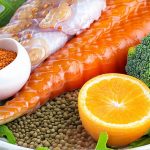That nagging feeling of fullness, pressure, and even bloating after lunch can derail your entire afternoon. It’s not just about discomfort; it impacts energy levels, focus, and overall productivity. Many people struggle with this post-lunch slump, often without realizing that simple adjustments to their midday meal can make a world of difference. Often, the issue isn’t what we’re eating as much as how we combine foods and the inherent digestive properties of those choices. Understanding how different foods interact within our bodies – considering factors like fiber content, fat levels, and potential gas-producing ingredients – is key to creating a midday meal that supports sustained energy rather than triggering unwanted bloating or discomfort.
The goal isn’t deprivation or restrictive dieting; it’s about making informed choices that align with your digestive system’s needs. A mindful approach to lunchtime can transform it from a productivity killer into a restorative break, setting you up for a successful and comfortable afternoon. This involves prioritizing easily digestible foods, portion control, and being aware of personal sensitivities. It’s also important to remember that everyone is different; what causes bloating in one person might not affect another. The following will explore practical options and strategies for building midday meals designed to minimize digestive distress and maximize well-being.
Building a Bloat-Free Plate: Core Principles
The foundation of a bloat-free meal lies in understanding how our bodies process different food groups. Complex carbohydrates, lean proteins, and healthy fats are generally easier on the system when consumed in balanced proportions. Overloading on any single macronutrient can contribute to digestive issues. For example, excessive fiber intake without sufficient water can lead to constipation and bloating, while a very high-fat meal slows down digestion, potentially causing discomfort. Equally important is mindful eating; savoring your food and chewing thoroughly aids in the initial stages of digestion, reducing the burden on your intestines.
Portion control plays a crucial role. Even healthy foods can cause problems when eaten in excessive quantities. Smaller, more frequent meals throughout the day are often easier to digest than large portions consumed infrequently. Consider using smaller plates or bowls as a visual cue to help manage portion sizes. Hydration is also paramount; drinking water throughout the day and with your meal helps move food through the digestive system efficiently. Avoid gulping down liquids while eating, however, as this can dilute digestive enzymes and hinder proper breakdown of food.
Finally, identifying personal trigger foods is essential. Keeping a food diary to track what you eat and how you feel afterward can help pinpoint specific ingredients or combinations that cause bloating or discomfort for you. Common culprits include cruciferous vegetables (broccoli, cauliflower), beans, lentils, carbonated beverages, artificial sweeteners, and dairy products (for those with lactose intolerance). Eliminating these foods one at a time to observe the effects is a helpful strategy.
Lean Protein Sources & Digestion
Protein is vital for satiety and energy levels, but certain protein sources are gentler on the digestive system than others. Lean proteins like grilled chicken or turkey breast, fish (salmon, cod), tofu, and eggs are generally well-tolerated. Avoid excessively fatty cuts of meat or processed meats, as these can take longer to digest and contribute to bloating. Consider incorporating plant-based protein sources – lentils in moderation if they don’t cause issues for you, quinoa, or tempeh – which often come with added fiber benefits (again, balanced with adequate hydration).
Preparation methods also matter significantly. Grilling, baking, steaming, or poaching are preferable to frying, as they minimize added fats. Marinating protein in herbs and spices can enhance flavor without introducing potentially irritating ingredients. If you suspect a sensitivity to certain proteins, consider exploring alternatives. For instance, if beef causes discomfort, try switching to poultry or fish. Pay attention to how your body responds to different protein sources.
Fiber: Friend or Foe?
Fiber is essential for digestive health and overall well-being, but it can also be a double-edged sword when it comes to bloating. While adequate fiber intake promotes regularity and prevents constipation, sudden increases in fiber consumption or consuming too much without sufficient water can lead to gas and discomfort. The key is to increase fiber gradually and prioritize soluble fiber over insoluble fiber. Soluble fiber – found in oats, apples, bananas, and beans (again, if tolerated) – dissolves in water, forming a gel-like substance that softens stool and promotes gentle digestion.
Insoluble fiber – found in whole grains, wheat bran, and vegetables like broccoli – adds bulk to the stool but doesn’t dissolve in water. While beneficial for regularity, it can also be more prone to causing gas if you’re not accustomed to it. Combining fiber-rich foods with adequate hydration is crucial. For example, pairing an apple (soluble fiber) with a glass of water will aid digestion and minimize bloating. Listen to your body; if you experience excessive gas or discomfort after eating high-fiber foods, reduce the portion size or try a different source.
Hydration & Digestive Enzymes
Staying adequately hydrated is arguably one of the most overlooked aspects of digestive health. Water helps move food through the digestive system efficiently and prevents constipation, which can contribute to bloating. Aim for at least eight glasses of water per day, and sip on water throughout your meal. Herbal teas – ginger or peppermint tea are particularly helpful – can also aid digestion. Avoid sugary drinks and carbonated beverages, as these can exacerbate bloating.
Consider the potential benefits of digestive enzymes. While not a substitute for a healthy diet, supplementing with digestive enzymes (especially if you have known deficiencies or sensitivities) can help break down food more effectively. Enzymes like amylase (for carbohydrates), protease (for protein), and lipase (for fats) assist in the digestion process. Talk to a healthcare professional before starting any new supplement regimen. Certain foods also naturally contain digestive enzymes – pineapple, papaya, mango are good examples – and incorporating these into your diet can provide gentle support.
The information provided in this article is intended for general knowledge and informational purposes only, and does not constitute medical advice. It is essential to consult with a qualified healthcare professional for any health concerns or before making any decisions related to your health or treatment.





















